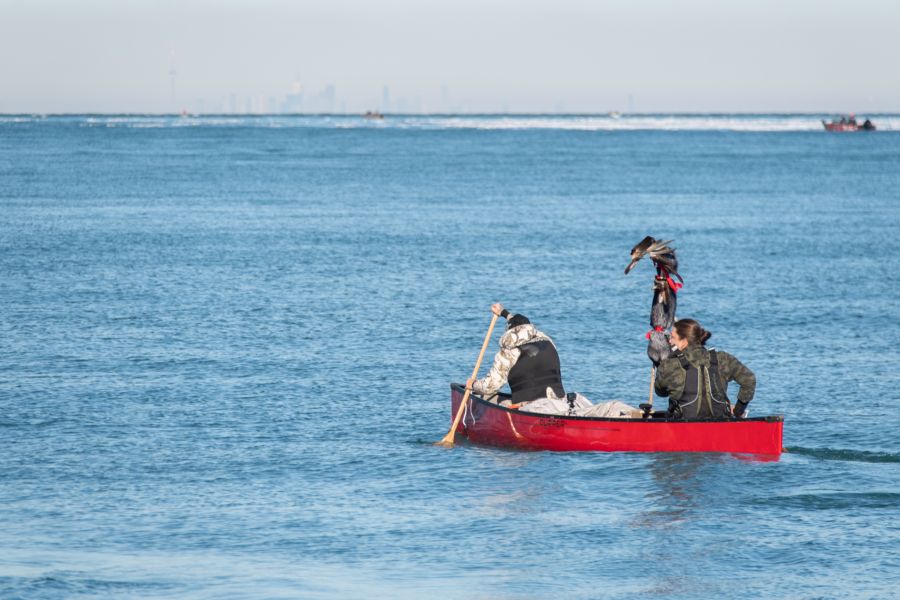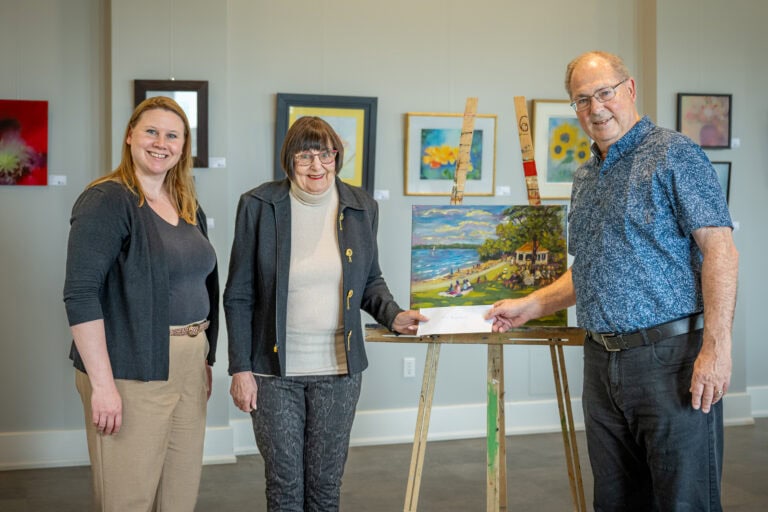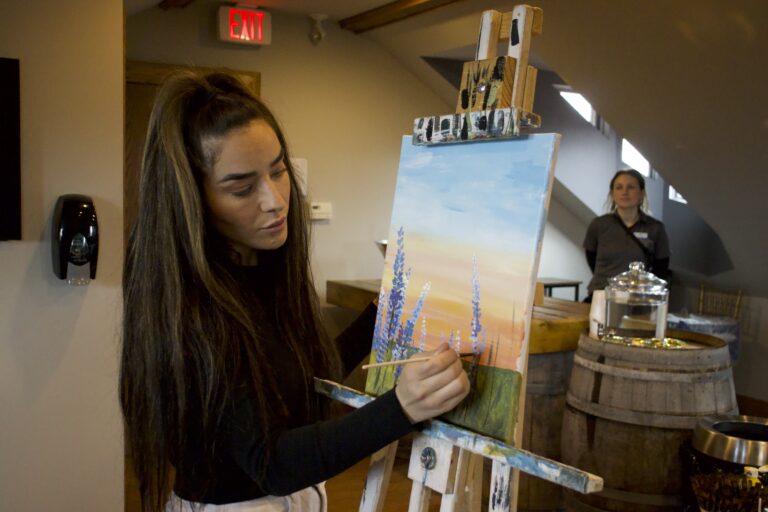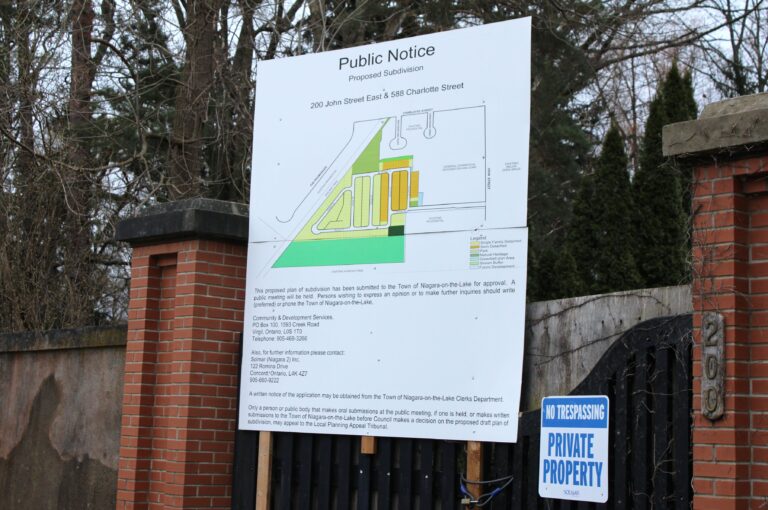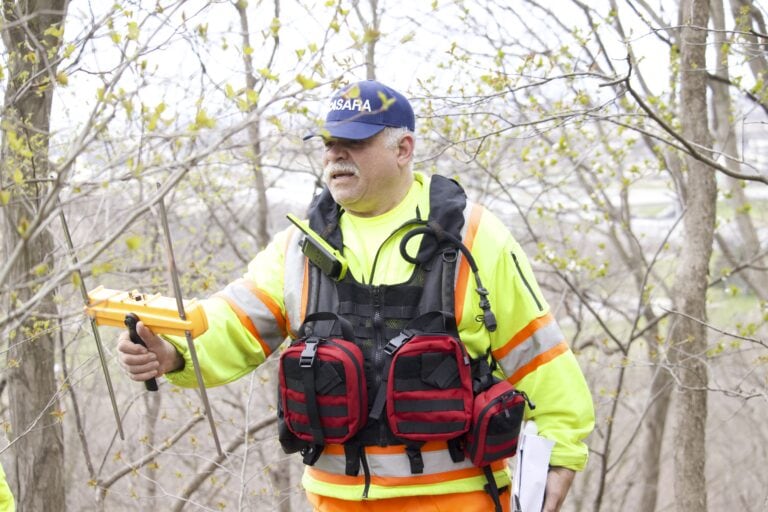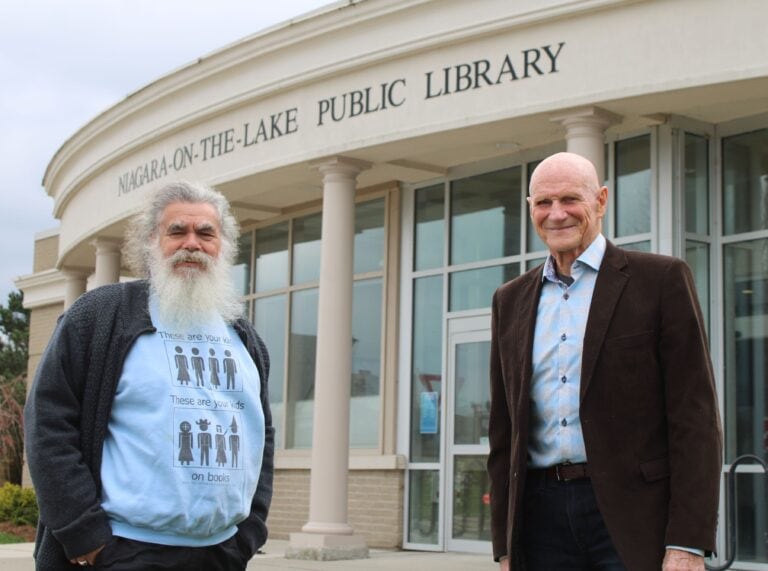Kyra Simone
Special to The Lake Report
On Feb. 4, some NOTL residents noticed a curious sight: two people canoeing on frigid Lake Ontario. From her backyard near Niagara Shores Park, Victoria Donald called out to offer assistance or hot beverages.
While they didn’t need her help, they explained their journey was a ceremonial one – from the mouth of the Niagara River to Toronto. They were motivated to take this exceptional action by the impacts of climate change.
This is the fourth such journey for Waasekom Niin, from Saugeen First Nation and Kettle & Stony Point First Nation. He began in 2016, travelling in the traditional way of the Great Lakes Anishinaabe peoples as a form of ceremony and prayer.
I was able to speak with Waasekom while he waited out some treacherous weather in Port Dalhousie. He acknowledged that this undertaking is dangerous, but like a form of fasting, it is a sacrifice on behalf of others.
But, he also says, new understanding emerges from each one of his journeys. “This is a form of inquiry, as well as a way of documenting climate change and giving a voice to the water.”
The unusual timing of the journey is intentional. According to Waasekom, “We’re in desperate times. These are the desperate measures we’re taking to find an answer.”
That said, the paddlers are adapting as conditions change to ensure safety. “We came to make offerings, not to be an offering!” Waasekom laughs.
CLIMATE CHANGE MOTIVATION: While the first day of the journey was lovely and bright, such warm conditions are abnormal this time of year.
Ice cover on the Great Lakes is at a record low. Because many fish species need this ice cover to reproduce, climate warming destabilizes the very foundation of lake ecosystems.
Niigaani-gichigami, what we call Lake Ontario, is the last stop in the Great Lakes system before water flows through the St. Lawrence River to the Atlantic Ocean.
“It’s an indicator for the health of the other lakes. It’s the same water,” says Waasekom.
Just as the lakes are intertwined, he observes, “Water connects us all, water unites us.”
In his work as a water advocate, Waasekom has seen many effects of climate change firsthand, progressing in real-time. After enduring blistering heat waves on a journey last summer, this winter voyage shows the other side of the same coin.
Many animals that would normally go south have actually stuck around. Geese and cardinals, for example, have stayed north in the warm conditions.
This is certainly concerning, but we can learn a lot from these creatures. “They’re adapting with the reality of climate change a lot better than we are.”
The human race, ironically, is also in a sort-of necessary hibernation during the COVID-19 pandemic. Waasekom says it’s important to think of this time as “incubation,” rather than isolation, so we can emerge from this dark winter in a new, more resilient form.
THINKING (SEVEN GENERATIONS) AHEAD: Waasekom’s initiative, E’daapnigaadeg Shkapjiganan (Picking Up the Bundles Canoe Journey), is named for a central Anishinaabe metaphor.
In this culture, decisions are made with seven generations of descendants in mind. Teachings from his ancestors, the Minisinook, described that humanity would come to a dire crossroads, with one path leading to destruction.
These ancestors understood how to work in balance with the Earth, and left “bundles” of knowledge for generations to come. “Picking up the bundles means to pick up our sacred responsibilities as human beings – to this Earth and to each other.”
We’re at this fork in the road now and our actions will unquestionably affect our descendants. “Seven generations from now, they’re going to look back and question our negligence … but they’re also going to see that some people took up the mantle to pull us out and get us to where we need to be,” he says.
Waasekom’s journey is about restoring balance and encouraging us all to redevelop a sincere relationship with the land. “Find that park, find that body of water, find that creek, that forest. (Find your) relation to that land, that space. From that relationship, you'll know how to take action.”
“It's about our great-grandchildren's future and their grandchildren's future. Are we going to be worthy ancestors?”
For more information, see the @MinisinookCanoeJourney Facebook page.
_______________
Kyra Simone is a NOTL-born nature lover with a master's degree in biology. In her spare time, she advocates for sustainable change, picks up garbage, makes recycled jewelry, and transforms furniture bound for the landfill.



